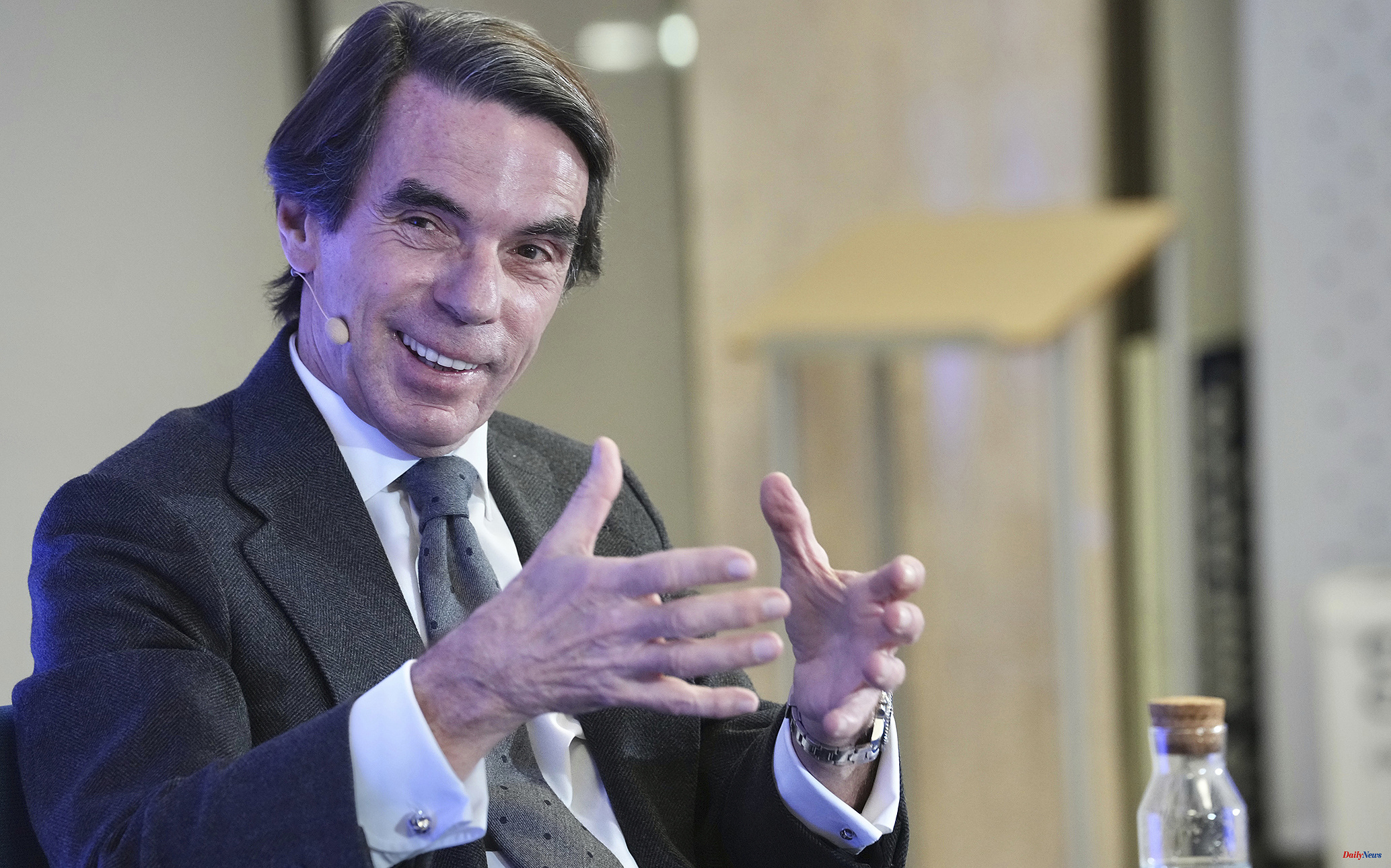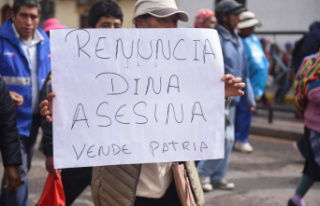With a month and a half to go before the 20th anniversary of the invasion of Iraq, former Spanish president José María Aznar has no doubts that the war was necessary and affirms that "if today I had the same information [about Saddam's Iraq] Hussein that in 2003] would make the same decision again". In an interview given to the 'One Decision' podcast, Aznar insisted that "I am not going to apologize for having supported the United States" in the conflict and declared himself "completely proud" of it.
When the interviewer asks him about the fact that Iraq was not related to 9/11 nor did it have weapons of mass destruction when the invasion took place, the former head of the Spanish government replies that "it is one thing to have direct responsibility for 9/11 -S and another that 9/11 will not totally change the war on terror. "The world is better off without Saddam Hussein, who was a murderous dictator, had tried to get nuclear weapons, and invaded his neighbors," concludes Aznar.
The former Spanish president sees Spain's support for the invasion and the overthrow of Saddam Hussein as part of the country's vocation in favor of the transatlantic relationship, which he considers key to world stability. "If there was no NATO, if there was no ability for the Europeans and the Americans to act together, the situation in Europe and the situation in Ukraine would be much, much worse today." Spain did not participate in the invasion of Iraq, but supported it diplomatically in different forums, including the United Nations, and later sent troops to occupy the country. The 11-M attacks. that brought the electoral victory of José Luis Rodrígue Zapatero motivated the Spanish withdrawal from the country and a crisis in relations with the US government headed by George W. Bush.
"[In Spain] we have always considered that the most important moments in our history were in the Atlantic. And, for a country like Spain, which is a member of the EU, being a good European is being a good Atlantic ally," says Aznar . "This idea is what transformed our relationship with the United States and the United Kingdom" during his two terms in office, he says on the podcast.
The idea of transatlantic solidarity appears again and again in the interview, in which Aznar affirms that "how is it possible that I ask for solidarity from the United States in my own fight against terrorism in Spain if I cannot offer my own solidarity To united states?". In June 2001, George W. Bush visited Madrid, in a meeting in which he and Aznar agreed that the United States would collaborate in the fight against ETA by means of electronic surveillance systems for the communications of the terrorists, who had their base in operations in France.
Aznar affirms that the military operation was an indisputable success, and that he never had any doubts about it, but he does admit certain reservations about the 'day after' the victory. This resulted in the disintegration of Iraq in a sectarian war in which hundreds of thousands - according to some estimates, up to a million - people died, including several thousand foreign soldiers among whom, according to the portal icasualties.org, are 11 Spanish people.
Aznar also has a reflection for the victims, both Spanish and Iraqi, American, and other nationalities, who caused the conflict. "I think a lot about them, but I think that the responsibility of the leaders does not change with these circumstances," he declares. In his opinion, it is a matter of leadership. "Having a feeling of closeness to these people who have suffered the consequences [of the invasion] is not incompatible with making a decision that tried to improve the world. That is the responsibility of the leaders," he concludes. The former Spanish president also reflected on leadership when, recalling "my friend Henry Kissinger", for whom "all leaders are in transit between the past, which is the history of their countries, and the future, which is a strategic idea about the future".
The mistakes in the occupation of Iraq are not the only ones that Aznar sees in US policy in the Middle East, although he mostly attributes them to Democratic presidents. Among them are the withdrawal from Iraq decided by Barack Obama and from Afghanistan negotiated by Donald Trump and executed by Joe Biden. And the nuclear agreement between the international community -directed by Washington- and Iran which, he qualifies, "is not a question of whether an agreement is desirable or not, but whether that agreement is good or not".
According to the criteria of The Trust Project












